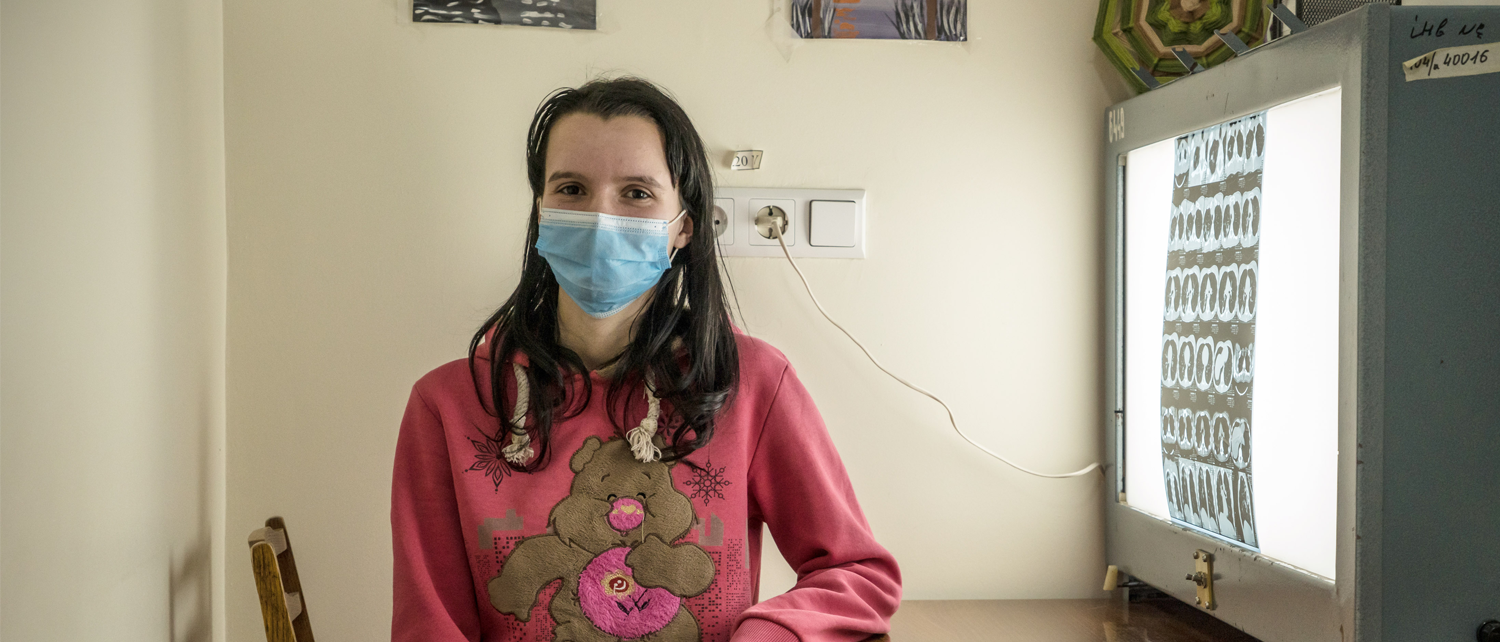Photo: Mariia, a resident of Lviv, Ukraine who was successfully treated with TB Alliance’s six-month regimen for drug-resistant TB in 2021.
Two years ago, Mariia became sick while she worked at a factory making doors. By the time she went to the doctor, she learned she had been infected with drug-resistant tuberculosis (TB) for more than a year. She began her treatment journey in Lviv, Ukraine, but went to Kyiv on the advice of her doctors, where she was enrolled in a new research program to expand access to a new six-month treatment regimen. Today, she is TB free.
Mariia was just one of an estimated 9,000 women who fall ill with some form of TB every day, per the latest available data from the World Health Organization. This deadly infectious disease, like others, can impact women differently than it does men.
Adult women have less access to health care services even though they represent 70% of the global healthcare workforce. Stigma and discrimination in some settings can mean that women who are ill with TB face ostracism from their families and communities.
At TB Alliance, we understand the importance of incorporating gender and addressing issues of marginalization into all levels of policy throughout our research pipeline and programs. Short, simple, safe, and effective TB treatments under development have the potential to erode the practical, financial and cultural barriers to accessing healthcare that are made worse by gender discrimination.
As we mark International Women’s Day 2023, TB Alliance and our research partners are committed to achieving gender equity in research and access to the best possible treatments.


